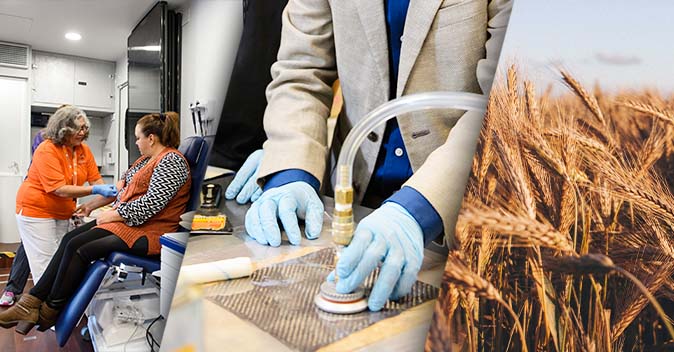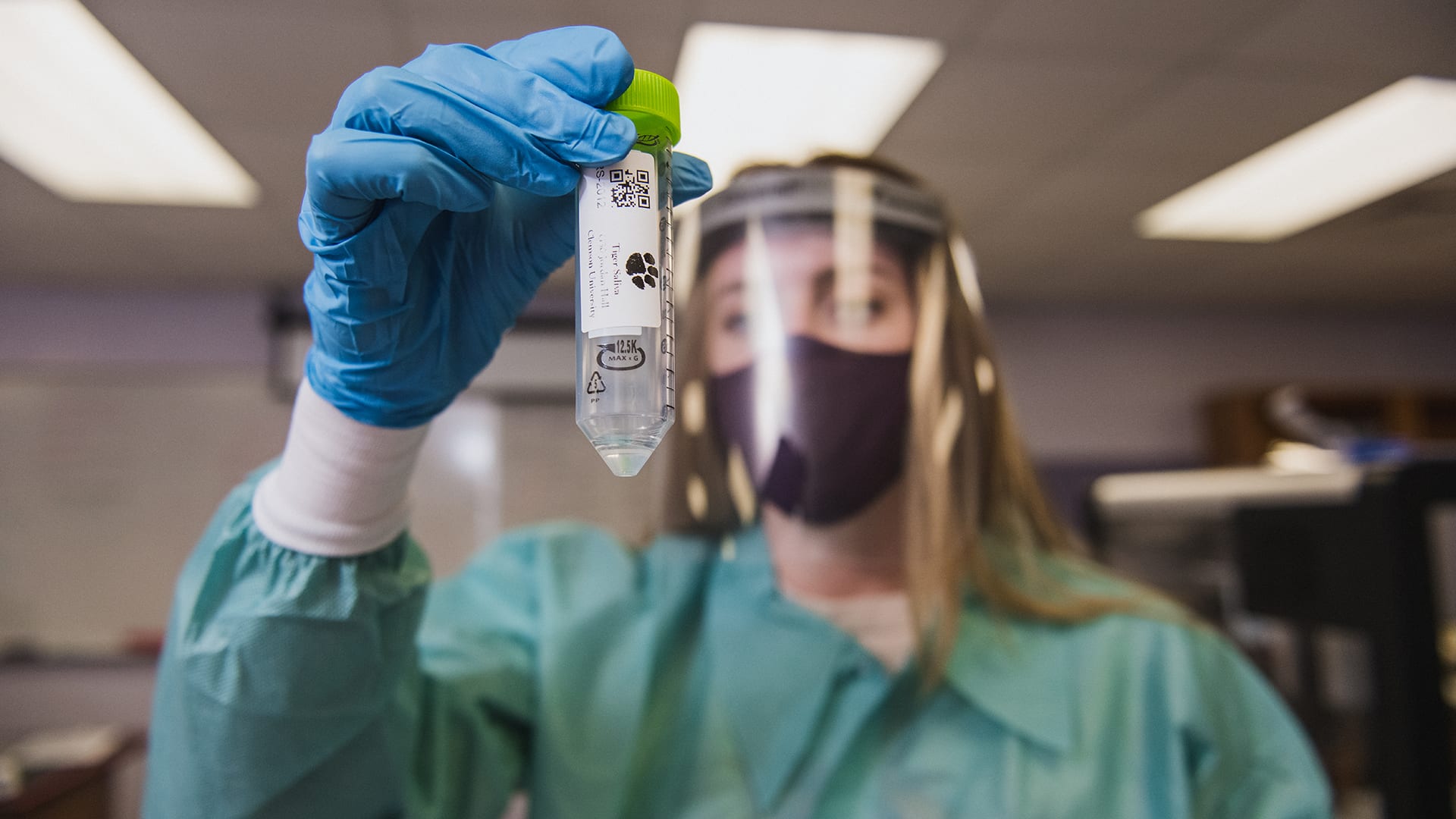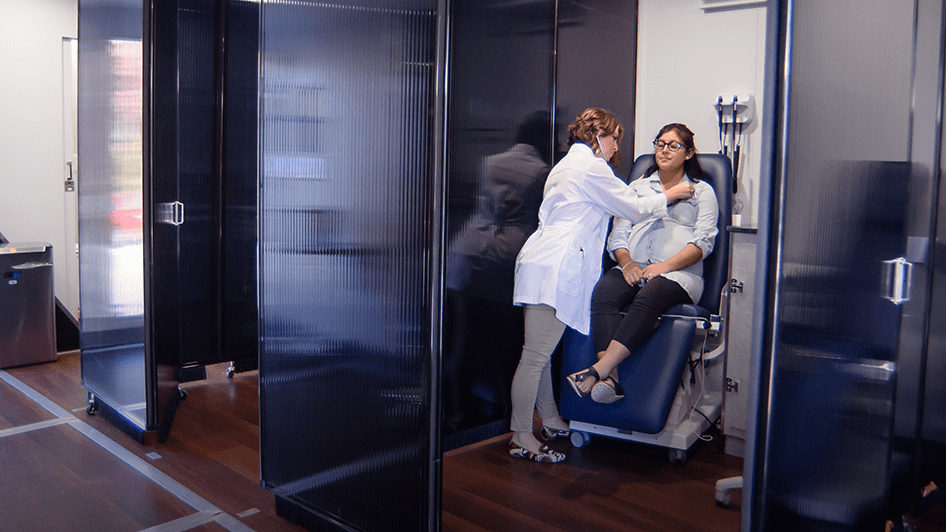2021 brought about significant change for industries worldwide with the need to modernize, revolutionize and reinvigorate how they are doing business to meet consumer demands. A people-focused approach will remain at the forefront of 2022 as companies seek new processes and products to solve the future’s most pressing issues, like food sources, health resources and sustainable materials.
Clemson University is working alongside industry to create these solutions for 2022 and the years ahead. The University’s expertise in engineering, agriculture and health innovation will propel advancements in South Carolina and beyond by supporting the millions of individuals who will benefit from this work. Here is what Clemson experts have to say about the work they’re doing to challenge the status quo and fuel a prosperous economy over the next year:
Regeneration: The new frontier for farming

The next phase in the evolution of agriculture requires taking a regenerative approach that considers the connectedness of systems. Going beyond individual elements within an agricultural practice to understanding systems holistically, researchers can incorporate economies of scale, societal considerations and land location into developing best practices for farmers.
Regenerative practices ensure the health of farms and the livelihood of owners and operators – and scaling this approach can provide short- and long-term benefits, like improved soil health and crop nutrient density, increased profitability, stress and pest tolerance, and resilience against drought and floods.
“Science has led us to understand that we need to look at things as systems. Traditionally, scientists look at different pieces and put them together to make the system more resilient, but changing one element in agriculture can significantly impact another. Every water problem, pest, fertilizer, adaptation and market problem is connected to the soil, the plants, the atmosphere. To achieve this connected approach, we are bringing teams together to create a convergence of expertise and research to find solutions for a problem from multiple angles.
“Regenerative agriculture is having such a big moment. There’s no one model of how agriculture should be; it’s what works best for that field, that farm. We need to understand, ‘What would work best here?’ Agriculture has gone through many phases in recent decades. We can look at a shift into green practices focused on recycling. We then graduated to sustainability, which was more of the idea of the system. Then we moved to resilience. Now we’re looking toward regenerative. It’s not just about bouncing back; it’s about becoming better to strengthen agriculture, which will ultimately strengthen our communities.”
– Paula Agudelo, associate dean for research and director of the Clemson University Experiment State
Mobile health care: Providing quality service on the road

In South Carolina, breast cancer is the most commonly diagnosed cancer among women and is the second leading cause of cancer-related death in the state. But breast cancer is not the only concern. The state also has the 11th-highest death rate in cervical cancer, and rural areas have a higher death rate due to barriers to prevention, diagnosis and treatment. While global efforts are focused on treating these cancers, for others, prevention and early detection are crucial to reducing cases statewide – a feat that cannot be addressed by one organization alone. Partnerships providing access to high-quality health care in rural communities will be imperative to buck increasing cancer trends.
Housed in the College of Behavioral, Social and Health Sciences, Clemson Rural Health is leading this charge with partners across the state to address health needs in rural communities. The program serves as the organizing framework for Clemson University’s health service delivery and prevention efforts statewide.
“Our work to screen for breast and cervical cancer has been nothing short of life-saving. Clemson Rural Health performed 72 clinics across the Upstate and Midlands for breast and cervical cancer screenings in underserved, uninsured and rural populations. These clinics screened 519 women and found 113 patients with abnormal breast cancer screenings and 38 with abnormal cervical cancer screenings.
“Patients in rural communities are often the ones who slip through the cracks or only appear in emergency rooms when many preventable problems have spiraled out of control. Clemson Rural Health takes a multipronged approach to health for all, addressing a chronic health condition or an unhealthy diet. Research is a cornerstone of this work, as is providing applied learning opportunities for our students. We are poised to continue expanding and collaborating with other partners to reach these rural, underserved populations and make a positive impact in their lives. This is powerful work that I am very proud of for our College.”
–Leslie Hossfeld, dean of the College of Behavioral, Social and Health Sciences
Clemson Rural Health continues delivering on its mission to improve access to high-quality health services in South Carolina.
Advanced materials: Enhancing productivity, profitability

Photonics, composites, ceramics and polymers are advanced materials making a big impact in manufacturing. Specifically designed for high-performance applications, the enhanced properties of advanced materials are superior to more conventional materials due to their useability for multiple applications, including several crucial to South Carolina’s economy, such as automobiles and airplanes.
According to the South Carolina Department of Commerce, the number of new jobs announced by advanced materials firms in the state numbered 10,300 from 2011-2020, and capital investment totaled $4.5 billion in the same period. With its innovative, entrepreneurial faculty, Clemson is well positioned to support continued growth in the industry while providing the next generation of talent for academia and government service.
“Advanced materials are often the unsung heroes, working behind the scenes to make life better in countless ways. They are crucially important to helping make nuclear energy safer, lasers more powerful, computers faster, medicines more effective, packaging more sustainable, automobiles more fuel-efficient and airplanes lighter, just to name a few examples.
“The defining feature of advanced materials at Clemson is the ability to span the range from basic science to applied research and device creation to maximize the impact on society. Our programming prepares students with an innovative, entrepreneurial mindset so they will be ready for the growing number of advanced-materials opportunities in South Carolina and beyond.”
–Kyle Brinkman, chair, Department of Materials Science and Engineering
Get in touch and we will connect you with the author or another expert.
Or email us at news@clemson.edu




